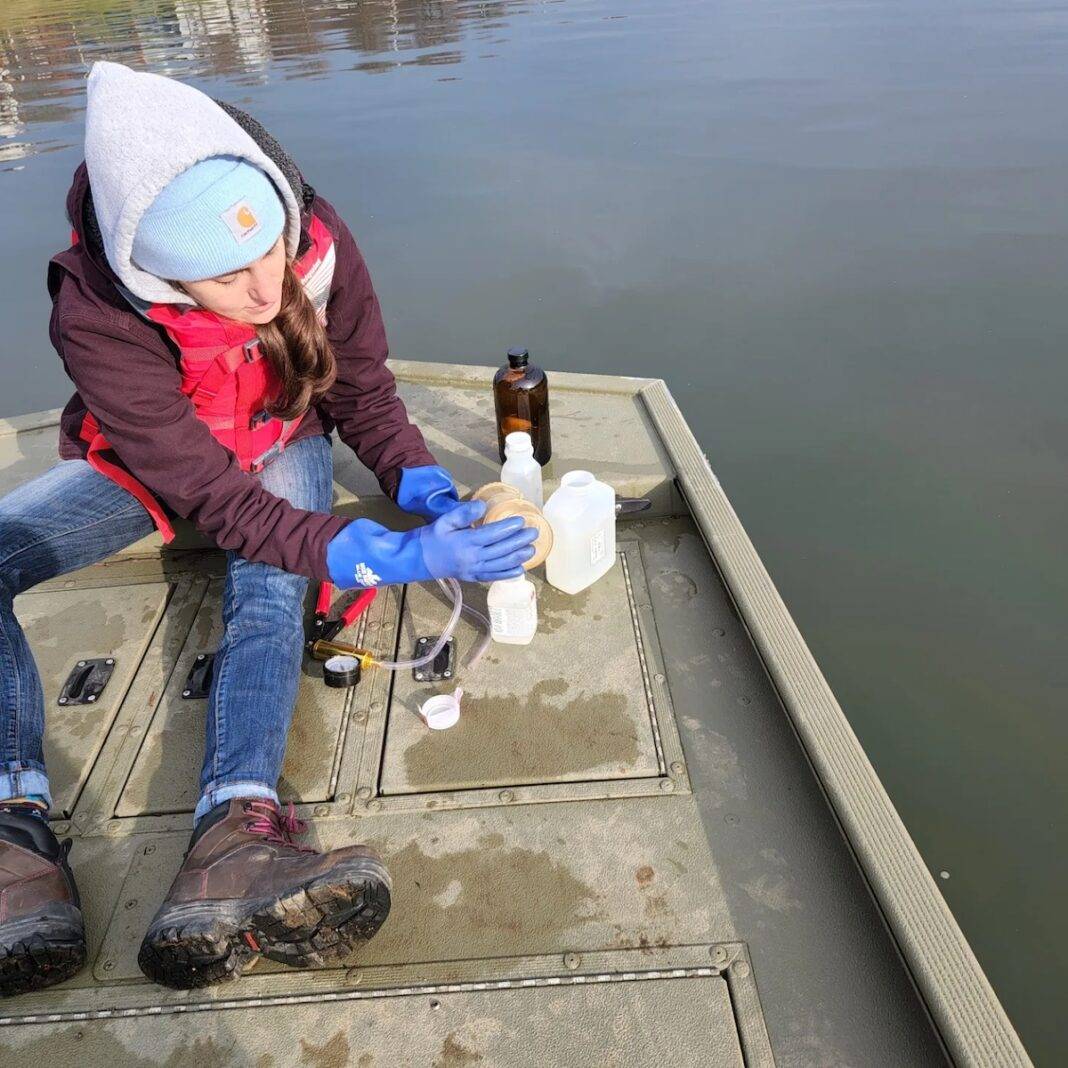Downtown Pittsburgh, often called the Golden Triangle, borders the confluence of three major rivers: the Ohio River from the west, the Allegheny River from the northeast, and the Monongahela River from the southeast.
Indeed, the three rivers flow right into the heart of this Western Pennsylvania city like major arteries of water, and the rivers sustain the region by supplying water to greater Pittsburgh’s roughly 2.37 million residents. To protect this crucial resource, Three Rivers Waterkeeper works to keep the rivers’ water clean, drinkable, fishable, and swimmable.
“A lot of people think it’s dirty and there’s not a whole lot we can do about it, but that’s not true,” says Heather Hulton VanTassel, executive director of Three Rivers Waterkeeper.
The nonprofit — a member of the international Waterkeeper Alliance, an umbrella network of clean-water environmental organizations — began in 2009 with a mission to protect the water quality of the three rivers in the Pittsburgh area and their watersheds. The organization does this with several ongoing programs involving community members, like on-the-water patrolling and monitoring. People will report suspected water pollution to Three Rivers Waterkeeper (3RWK) by emailing the group or tagging on social media. People report signs of poor water quality like oil slicks, water that is cloudier or muddier than usual, and foul smells.
Other 3RWK activities include outreach and education events, training on how to prevent and report water pollution — and volunteer trash pick-up events along the river shores, a project 3RWK does in an informal partnership with other area water-focused nonprofits that focus more on the significant problem of trash, tires, and other litter along the rivers. Because of the hilly topography of the region, everything is washed downhill into our waterways, VanTassel says. For 3RWK, the focus is more on the chemical properties of the waterways and safeguarding the quality, VanTassel says.
Representatives for 3RWK also write letters to lawmakers for advocacy, pressure the Pennsylvania Department of Environmental Protection (DEP) to hold polluters accountable, and file a citizen suit against polluters when the DEP falls short.
“All of the industries along rivers in Pittsburgh — they have allowances for what they can put into the water, and we’re there to make sure they stay within allowances,” says Van Tassel, who has a Ph.D. in ecology from the University of California at Riverside.
The biggest threat to Pittsburgh’s three rivers, she says, is possible deregulation and lack of enforcement of the federal Clean Water Act, along with water-contaminating fracking, which VanTassel says has become widespread in Southwestern Pennsylvania — especially in Washington and Westmoreland counties, which border Pittsburgh’s Allegheny County. The U.S. Supreme Court is considering deregulation in the case Sackett v. U.S. Environmental Protection Agency.
With Democratic Governor-elect Josh Shapiro and new lawmakers taking office in January, VanTassel is hopeful that state-level environmental protection will come from the state capital of Harrisburg. Regardless of what government agencies do, individual people can make a huge difference by volunteering to help protect the Ohio, Allegheny, and Monongahela rivers.
Elly Fisher, of Pittsburgh, has a career in community development, and donates her time and skills to 3RWK to help the organization acquire a run-down building on the Ohio River that could be renovated and used as a marina for water-protecting nonprofits, including 3RWK, Allegheny Cleanways, and Friends of the Riverfront. Fisher helped 3RWK develop a strategy for acquiring the property through the city and navigate city departments.
The marina would help “getting people out on the river, enjoying it, and learning about it,” Fisher says. “It’s much more powerful when you can actually see what the problem is.”
If you live in the Pittsburgh area, you can help by following Three Rivers Waterkeeper on social media, where events are posted. Come springtime, many volunteer opportunities for outdoor activities will be available, like helping with water assessments, taking water samples, and helping at events. You also can take the organization’s training for the 3Rivers Watch program, where residents can spot and report water pollution.
The key is getting people to realize how we depend on the three rivers, so we feel invested in protecting them, VanTassel says. She finds that people who use the rivers recreationally, such as for boating and swimming, already feel invested in them. But 3RWK wants everyone to feel connected to the rivers — we all need clear water for drinking.
“I think it’s really important that in order to protect our water quality, the folks who are the most impacted should feel connected to it,” she says. “You can’t get away from water if you live in the region.”


